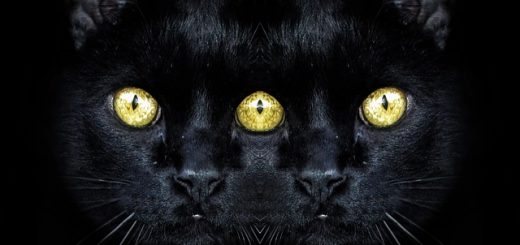Between Now and Then by Chip Jett

Between Now and Then by Chip Jett
Tasha McKentry opened her eyes. She knew this had all happened before. Everything. The ticking clock on the wall; the harsh scrape of a cheap public school chair on tile breaking the afternoon silence; the fly that buzzed past, just now, and landed on the open mouth of her Dr. Pepper; the Mike Mills concerto coming from the Bluetooth speaker to which her phone was synced; the message on her phone.
But there was no message. She waited. She glanced at the screen again. Only the title “Find the River,” by Mike Mills, glowed at her. She shook her head and threw the fly-fouled Dr. Pepper in the trash. Her mind must have wandered so far from herself that she lost track of time. But it had only been a moment. She was sure of it.
As if waiting for some cosmic cue, the music softened. Tasha’s phone made the ‘ding’ sound that alerted her to an incoming text. In spite of her anticipation, or maybe because of it, she jumped. Tasha looked up; the kids hadn’t flinched. She felt a sudden wave of déjà vu grab her by the spine and give her nerves a shake. She laughed even though nothing was funny.
Her students were busy pretending to take their essay assignment seriously, and for that she was grateful; at least they were quiet. She had a few papers left over from last week’s class she had to grade, and the peace and quiet today was just what she needed. She sat at her desk, mind wandering (to where she could not recall), while her students increased her workload. By the look of things, she had not done her job at all; these kids still had no clue how to use a semi-colon.
Tasha didn’t want her students to think she was on her phone in class, so she stood up. She made a lap around the room, checking the progress of the assignment, correcting comma splices and run-ons as she went. She made it back around to her desk and snuck a glance at her phone. She opened her messages and saw that the ‘ding’ she had heard belonged to an unknown number. The message read, “Congratulations, Dr. McKentry. Your paper gets published. You were right all along.”
Was it a joke? Likely. It must be someone who knew how high her stress level had been lately. Maybe someone was trying to make her laugh.
She typed, “Who is this?” and hit send.
She put the phone down and made another trip around the room. She wanted the message to be real and didn’t like the idea of someone having fun at her expense. Besides, she hadn’t yet submitted the paper; there was no way anyone could have cross-checked the data and given it the greenlight for publication.
The paper weighing on her mind was one she had worked on for years, and it was just controversial enough that she had kept quiet for fear of ruining whatever reputation she had. Einstein said it first, and mountains of research proved he was correct: time-travel was possible. The knowledge that had eluded decades of scientists since his findings was how to go about doing it. And Tasha thought she knew.
Tasha’s obsession started long ago, the summer she turned nine. She had followed her cat, Tinker, up the driveway, desperately trying to get him out of the road where she had found him playing with a reflector. The stubborn cat had stood there, looking at her, until a car came over the hill and ran him over. Tasha had watched it happen. She had spent the rest of that summer trying to find a way to bring him back. She didn’t think in terms of Victor Frankenstein; she thought of Albert Einstein. She believed if she could go back in time to the moment before the reflector had caught Tinker’s attention, she could save her precious kitty.
Tasha had spent her life trying to solve the riddle of traveling through time. Her mother had encouraged her to pursue her love of science, but her father had been skeptical and suggested teaching instead. At least until, as he put it, she “got all that science out of her system.” But it was in her, and it was so much of who she was.
She’d been labeled a nerd in school, all the way up to her junior year, when she had seemed to emerge from the periphery like a ship from some rolling fog. She enjoyed her fifteen minutes of high school fame. She made homecoming court her junior year and queen as a senior. The boys who had either laughed at her or ignored her for most of grade school suddenly wanted to sit beside her in class, to study with her on the weekends.
She had dated a little but never had what she’d have called a boyfriend. Long before Tasha had cared about a social life, she had learned to love science. It didn’t make for exciting conversation when she finally ranged into the dating arena.
“I believe time travel is real,” she had told Matt Williamson on a Friday night stop in town at the Burger Chick.
“I think it has more to do with the mind traveling backward and forward, not so much the body,” she said to Drew Moon as they drove around to the far side of the lake where couples liked to park.
“Gravity is important, sure, but so is relativity. Einstein said the past, present, and future aren’t real, so what does that say about us going to whenever we want?” This she demanded of Andy Rice, the last of her dates before graduation.
Matt had taken her home before their shakes melted, Drew never stopped the car as he drove from one side of the lake straight on to Tasha’s front door, and Andy lost her number. She always said “lost her number” with air quotes whenever she talked about these things with her friends.
And then her fifteen minutes were over.
She left for college on a full ride to Georgia Tech. She wasn’t as celebrated as the quarterback who had been recruited to redshirt at Georgia, but her name did make the yearbook senior superlatives as ‘most smartest.’
She began her research at Tech, thinking she would publish her findings as a Doctoral dissertation. But it was difficult to find anyone willing to listen to her ideas, especially ones about time travel.
Her advisor, an elderly man relaxing on tenure, suggested she write her thesis on something more concrete. He was sure there would be a place for her at the Institute in astronomy or engineering. He was even willing to put in a good word for her. It was after that conversation that she read about the call for teachers and gave in to what everyone around her wanted.
She worked on her paper anyway – the one that would have been her doctoral dissertation. Her research was solid, her theories sound. Like the giants before her, she knew she was right, but she couldn’t prove it. If not for her detour down the path of public education, she might, by now, have had the proof she needed to turn her theory into fact.
She finished her undergrad work at Tech in three years, her masters in two. In her spare time, of which here was precious little, she continued to research her ideas.
Because of a hiring initiative by the governor, she managed to land a job after graduation teaching high school biology (because, as the principal had told her, science is science) without suffering the hassle of certification. At the time, she felt lucky. Still, time travel never left her mind. Between lesson plans and staff meetings, she researched and wrote. For her second year teaching, she received word that she was moving to fifth grade Language Arts. She had been crushed.
She thought, on more than one sleepless night, that her mom and dad had been right; the boys who never called her for a second date had been, too. Science just wasn’t her domain. Maybe she should just teach.
But something inside her wouldn’t let go. That little grain of an idea she had discovered so many years ago, calling for her cat, had irritated her. She turned the idea over and over when she couldn’t sleep and tried to hide it away during the day. But it was always there, vying first with high school biology for her attention then with fifth grade grammar. In the dark of night and in the far corners of her mind, she had been working it out. Like a name you try desperately to remember that sits just out of your grasp, her idea – her theory – began to take shape. That little grain of an idea, over the course of the last six years, became the pearl she had been diving for in the deepest oceans of her subconscious. And when she had it, she knew she was right.
But her path, chosen for her by her father, her dates, and her college advisor, dictated otherwise. She wasn’t yet a time-traveling physicist; she was here, today, a fifth grade grammar teacher trying to surreptitiously break her own class rule and sneak a look at her phone.
The text she had sent asking the identity of her mystery contact sat, still unanswered.
A few days after the text, she dropped a printed copy of her paper in the mail. Weeks later, she received word that her paper was under review and that the subject matter was intriguing. Later still, an email brought her news she had waited years to hear – her research was flawless, and her findings, while only a collection of theories, were as close to solid proof of time travel as had ever been asserted.
After her initial adulation died down, Tasha remembered. She remembered the text she had received, now months ago, telling her the paper would be accepted. The paper she had, at that time, not yet mailed. The trickster had never come forward, and she had dismissed it. But wouldn’t they (whoever they were) love to hear the news.
Tasha spent her summer break experiencing a new kind of fame, this time as a celebrated scientist. She toured the country, gave lectures to large crowds, answered questions, and defended her paper. No one could disprove her findings.
It was on one of her stops, either Boston or Philadelphia, she received another anonymous text. This one read, “Bump in the road ahead. Be ready. The answer is in the stars.”
This one was from a different number, but she recognized the tone. It had to be her little friend again, the one who seemed to know her future.
“How about tomorrow’s lottery numbers?” she responded.
Nothing.
The following evening, at Cambridge, Tasha took questions from a crowd of mostly astrophysicists. She had delivered what she felt was an engaging presentation and opened the floor to questions. An older gentleman challenged her on a particularly tricky part of her research.
“If it is possible to move through time, how do you account for the physical human interaction with the elements of space-time? Time is, after all, related so closely with the heavens, yet humans are not.”
He had her. For a moment, she was stuck. Even though her theory dealt with time travel as a mental challenge rather than a physical one, the man had a point. How could she reconcile human movement, whether physical or otherwise, through the deepest parts of space?
And it came to her out of the blue. Well, not really out of the blue, and not really at that moment. Tasha realized, with some shock, that the answer was hidden in the anonymous text from the day before.
“Plasma,” she told the man. “Plasma is the great equalizer when it comes to human and space-time interaction.”
The man sat down, satisfied with the answer and the reality that Tasha’s time travel theory was most likely fact.
Later, at the hotel, Tasha checked her phone again and found no lottery numbers; her friend hadn’t responded. She texted a quick note of thanks and repeated the question, “Who is this?”
Again, no response.
By the time Tasha returned from her tour, summer was coming to an end. A new school year was just around the corner, and she needed to get her room ready for the next wave of students coming her way. They didn’t care about her scientific fame; in fact, she kept her summer activities to herself. She spent the last days of July setting up her classroom, cleaning, and preparing lessons.
Her mind, however, worked on other things.
She no longer worked out formulas and algorithms. Tasha had settled the issue of time travel; now it was now up to others to find a way to make it happen. Her mind worked instead on discovering who had sent her the two mysterious texts. Something about their insight had chipped away at her sense of reality. She was troubled.
The texts had been anonymous. They didn’t make demands, and there were no responses to her inquiries.
And that day, in a sweltering classroom surrounded by a summertime’s worth of things to do, Tasha realized she knew the identity of her mysterious friend. The only person who knew she was still working on the paper was herself. She had also known her stress level had been through the roof at the end of last year, and worry had been consuming her. Only she could have known the paper would be finished and accepted; only she could have known the question the man in Cambridge would ask.
Tasha stopped cleaning the classroom. From the same laptop she used to run her initial numbers, she tested her new theory. Utilizing the program that had confirmed her data, she input a date. She typed out the message and hit send. If she was right, somewhere back in time, she was reading the first message that the paper would be published. She had to approximate the second message; she knew she had been somewhere near Boston, which would have been June. She sent the message, warning her past self that an old man would stump her in Cambridge.
Tasha sat back and wondered, hoping the messages she sent were worded the same as the ones she received not so long ago. She knew they would be; after all, she had received them, hadn’t she?
A realization dawned on Tasha. If her past self became aware of her future, something terrible could happen. There were other theories out there about time travel. There were paradoxes to consider, such as the grandfather paradox that suggested she could alter time in such a way that she wouldn’t exist in the future. Yet here she was.
The correctness of Tasha’s theory was that humans could indeed travel through time. At the heart of her theory (now discovery) was the realization that the human consciousness travels, not the body. Tasha knew as well, though she hadn’t factored it into the paper, that a human consciousness can only exist in one place at a time. Consciousness is, after all, relative. As long as the traveler remains unaware of an alternate self, everything works. But as soon as Tasha told her past self what was going on, her consciousness would likely revert to the day of the first text, thus creating the start of what she was quickly ascertaining would become an endless loop.
But here she sat, aware that she was in what would be, to her past self, the future. Had she checked the incoming text immediately? She couldn’t remember. From the look of things, there was still a future ahead, but she had to act quickly to preserve it. Every moment, she became more aware of the truth of her own discovery, and the truth could mean the end. Only by stopping her past self from continuing the research could she hope to break the loop that was an ever-increasing probability.
She chose the same date and time of the first text, the day she told herself not to worry.
“Don’t search anymore!” she typed to herself. “Your research has created a loop. If you continue, the only thing left of the world will be a circle of time between where I am now and where you are then. You’ve got to stop!”
Tasha hit ‘send’ and waited for the acknowledging response letting her know the text had been read. Instead, a red exclamation point appeared beside the message.
“No,” she said, and hit ‘resend.’
The same result, a red exclamation point. She tried once more, knowing what would happen before she sent the message. She didn’t need to travel through time to see that future.
Tasha sat down at her desk in the sweltering classroom. She knew she had been right, and she knew this was it – the end. Or was it the beginning? It was impossible to tell from inside a circle.
From somewhere in her consciousness, somewhere far away, the soft strains of a Mike Mills concerto played the opening notes of a song she remembered called “Find the River.”
Tasha closed her eyes, but only for the briefest of moments.
THE END
Copyright Chip Jett 2019 – first published in “Ripples in Space” –https://ripplesinspace.com/summer-2018-selections/























